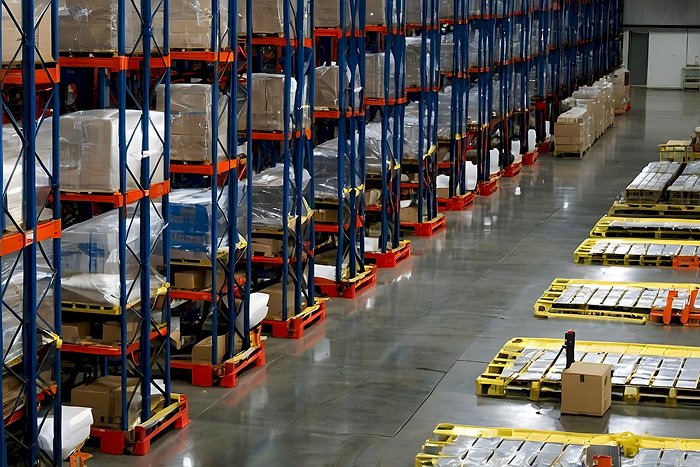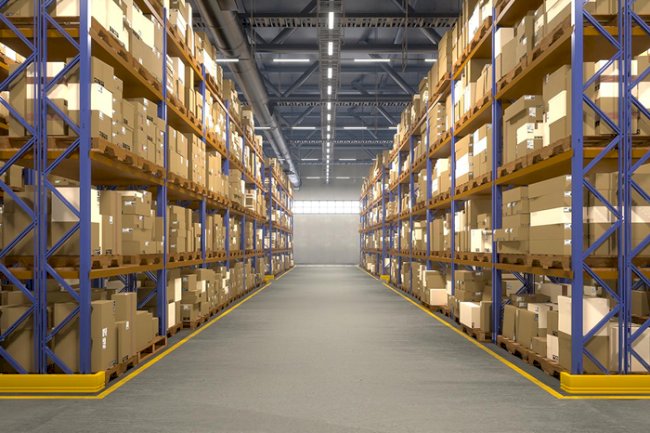Types of Warehouses: Find the Right Fit for Your Business | StowNest

In today’s fast-paced business environment, choosing the right type of warehouse is critical to your supply chain’s success. From product handling to delivery speed and cost-efficiency, warehousing can either streamline your operations or hold you back.
Understanding the types of warehouse available can help you make smarter decisions based on your industry, scale, and customer demand. Whether you’re a startup needing seasonal storage or a large enterprise distributing goods nationally, there’s a warehouse designed to match your needs.
Different Types of Warehouses
Every warehouse serves a specific purpose. Choosing the right one depends on your storage volume, product type, and service expectations. Let’s explore the key types of warehouses and how they function in real-world scenarios.
1. Public & Private Warehouse
Public Warehouse:
These are open to use by multiple businesses and are usually managed by third-party operators. They’re ideal for short-term storage, small businesses, or companies testing new markets.
-
Flexible rental terms
-
Pay-as-you-go models
-
No upfront capital investment
This model is particularly useful for seasonal fluctuations in inventory or when entering new regions without committing to large infrastructure costs. Businesses that require temporary warehousing in cities like Mumbai or Kolkata often opt for this solution.
Private Warehouse:
These are owned and operated by a single business for its exclusive use. Best suited for companies with consistent storage demands.
-
High level of control
-
Customised storage setup
-
Long-term cost advantage
Private warehousing offers better brand security and can be tailored to specialised storage requirements, such as climate control or high-value inventory.
At StowNest, we offer scalable solutions that combine the affordability of public warehousing with the efficiency of private infrastructure, giving businesses the best of both worlds.
2. Cooperative Warehouse
These warehouses are owned by a group of businesses, typically agricultural cooperatives or small manufacturers, who pool their resources for shared storage.
-
Lower storage costs for members
-
Shared use of equipment and utilities
-
Encourages community-based collaboration
While less common in urban commercial hubs, cooperative warehouses are great for seasonal stock like grains or local produce. This model promotes economic inclusion, especially in rural economies, by reducing the financial burden on individual farmers or small traders.
3. Contract Warehouses
In a contract warehouse model, a business enters a long-term agreement with a warehousing provider for dedicated space and services.
-
Tailored solutions for inventory management
-
Often includes logistics, packing, and distribution
-
Cost-effective for medium to large enterprises
These warehouses are ideal for companies with steady or predictable inventory needs. The long-term contract often ensures priority access, a dedicated workforce, and improved security.
If you’re planning to expand operations in cities like Pune, check out our customised Warehouse in Pune built for growing businesses with multi-city operations. It is especially suited for FMCG, automotive, and e-commerce sectors.
4. Distribution Centres
Distribution centres focus on speed and efficiency. Rather than storing goods for long periods, they serve as transit hubs where products are received, processed, and dispatched quickly.
-
Ideal for e-commerce and retail
-
Same-day or next-day delivery
-
Integrated with fulfilment and delivery systems
These centres are designed to reduce delivery times and support just-in-time inventory practices. Companies dealing in fast-moving consumer goods benefit greatly from such setups.
StowNest’s warehouses act as efficient distribution centres with real-time inventory tracking and smart delivery integration, helping your business meet consumer expectations.
5. Bonded Warehouse
These government-licensed warehouses are used to store imported goods that are awaiting customs clearance. Duties and taxes are paid only when the goods are released.
-
Perfect for international businesses
-
Store goods without immediate duty payment
-
Ensures compliance with customs regulations
If you deal with global suppliers, a bonded warehouse gives you flexibility while reducing upfront costs. It’s also ideal for items that are to be re-exported, thus avoiding double taxation.
6. Bulk Storage Warehouse
Bulk storage warehouses are designed to handle large volumes of a single product type, such as raw materials, grains, or industrial chemicals.
-
Minimal handling
-
Lower cost per unit stored
-
Often located near ports or industrial zones
These warehouses suit businesses with high storage volume and low frequency of movement. For example, a manufacturer dealing in construction materials may require long-term storage without frequent dispatches.
StowNest provides dedicated bulk storage options for such requirements, strategically located near key logistics corridors.
Conclusion
There’s no one-size-fits-all approach when it comes to warehousing. Each type of warehouse brings its own strengths depending on your product type, budget, and delivery model.
From flexible contract setups to full-fledged distribution centres, your choice of warehouse could directly affect your speed, cost, and customer satisfaction.
Moreover, a study by the Indian Institute of Materials Management (2023) found that companies using tailored warehousing solutions reported up to 28% reduction in logistics costs and a 34% improvement in on-time delivery rates. This data highlights the long-term benefits of choosing the right warehouse model.
At StowNest, we offer end-to-end storage and logistics solutions tailored to your business, whether you're in Pune, engaged and need Warehousing in Mumbai, or want to operate a Warehouse in Kolkata or any other major cities in India.
Discover smarter warehousing today, and let us help you scale with ease.
What's Your Reaction?

























